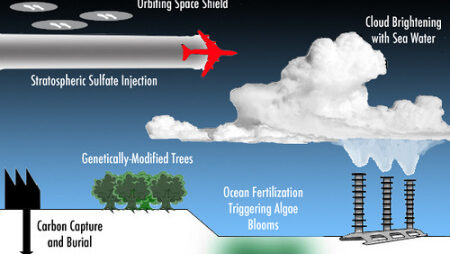Engineering is an integral part of modern society, responsible for creating innovative solutions to complex problems. However, it is important to recognize that engineering is a double-edged sword, with both positive and negative impacts. One of the most pressing challenges of our time is climate change, and it is crucial to explore how engineering contributes to this issue. In this article, we will delve into the dark side of innovation, examining how certain engineering practices fuel climate change. We will also explore the potential of engineering to shape a sustainable future, discussing how it can be harnessed as a powerful tool for climate solutions.
The Dark Side of Innovation: How Engineering Fuels Climate Change
Engineering has undoubtedly revolutionized the world, but it has also played a significant role in exacerbating climate change. The burning of fossil fuels, a primary driver of climate change, relies heavily on engineering advancements. Engineering has allowed us to extract and utilize fossil fuels on an unprecedented scale. Whether it is the engineering of offshore oil rigs or the construction of massive coal-fired power plants, these feats of engineering have inadvertently contributed to the release of greenhouse gases, such as carbon dioxide, into the atmosphere. These emissions trap heat, leading to global warming and the subsequent climate change we are experiencing today.
Moreover, engineering has contributed to deforestation, another major contributor to climate change. The engineering of logging equipment and the construction of roads to access remote areas have facilitated widespread deforestation, particularly in rainforest regions. Deforestation not only releases large amounts of carbon dioxide into the atmosphere but also reduces the Earth’s capacity to absorb carbon emissions, further exacerbating the problem. Engineering, in this context, has played a crucial role in accelerating deforestation, leading to the loss of biodiversity and the destruction of vital ecosystems.
Shaping a Sustainable Future: Harnessing Engineering for Climate Solutions
While engineering has fueled climate change, it also holds the potential to be a powerful force for positive change. Engineers are at the forefront of developing innovative technologies and solutions that can help mitigate and adapt to climate change. Renewable energy systems, such as solar and wind power, are prime examples of engineering advancements that can revolutionize our energy landscape. Engineers are continuously improving the efficiency and affordability of renewable energy technologies, making them increasingly competitive with fossil fuels. By transitioning to renewable energy sources, we can significantly reduce greenhouse gas emissions and break our dependence on finite fossil fuel reserves.
Engineers are also involved in the development of sustainable infrastructure and resource management systems. From designing energy-efficient buildings to creating smart grids that optimize energy consumption, engineers are shaping a sustainable future. Additionally, advancements in transportation engineering, such as electric vehicles and improved public transportation systems, have the potential to reduce emissions from the transportation sector, a significant contributor to climate change. By harnessing engineering expertise and innovation, we can create a world where economic development and environmental sustainability go hand in hand.
Engineering has undoubtedly played a significant role in fueling climate change, but it also holds the key to mitigating its effects. It is crucial that engineers, scientists, policymakers, and society as a whole work together to prioritize sustainable engineering practices. By addressing the dark side of innovation and harnessing engineering for climate solutions, we can shape a sustainable future that not only mitigates climate change but also ensures a prosperous and resilient world for generations to come. It is time to embrace the transformative power of engineering and steer it towards a path that benefits both human progress and the preservation of our planet.



